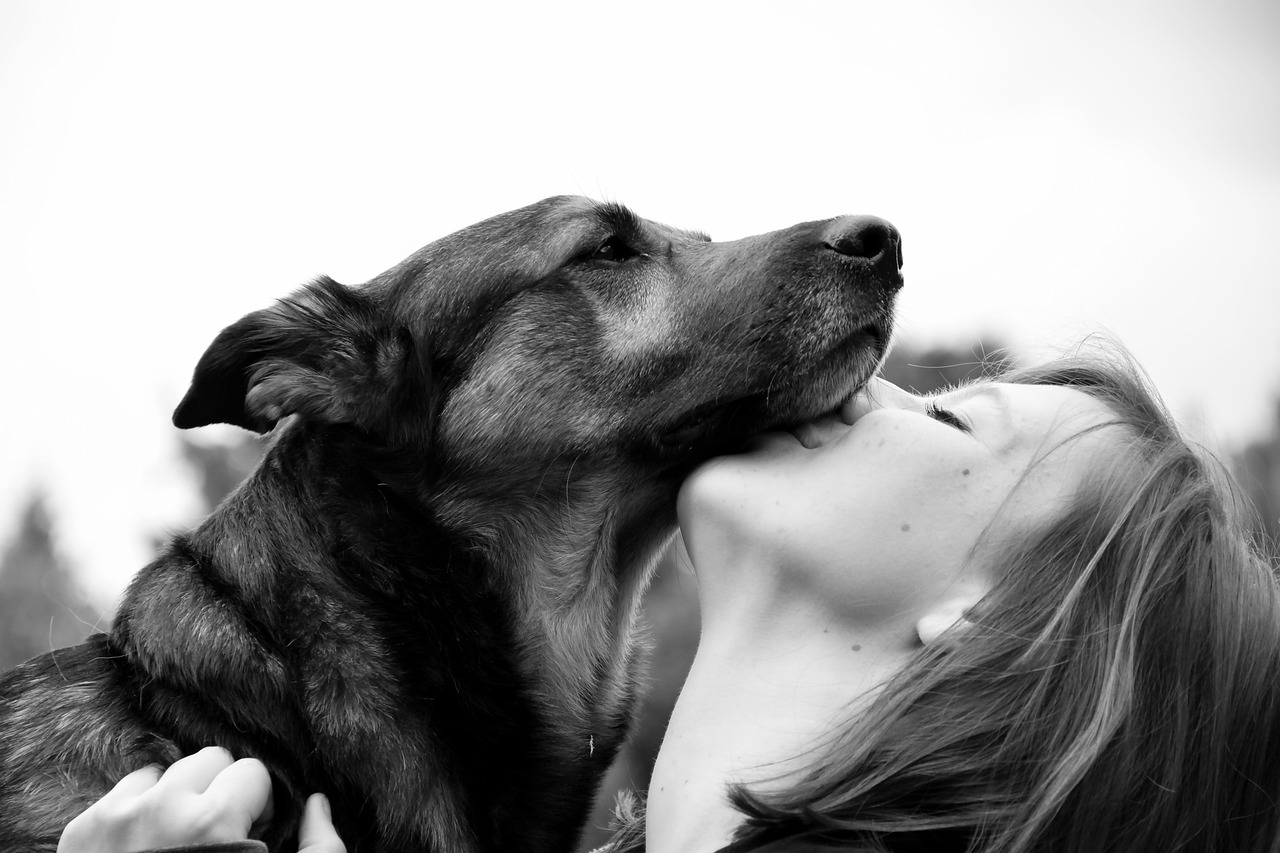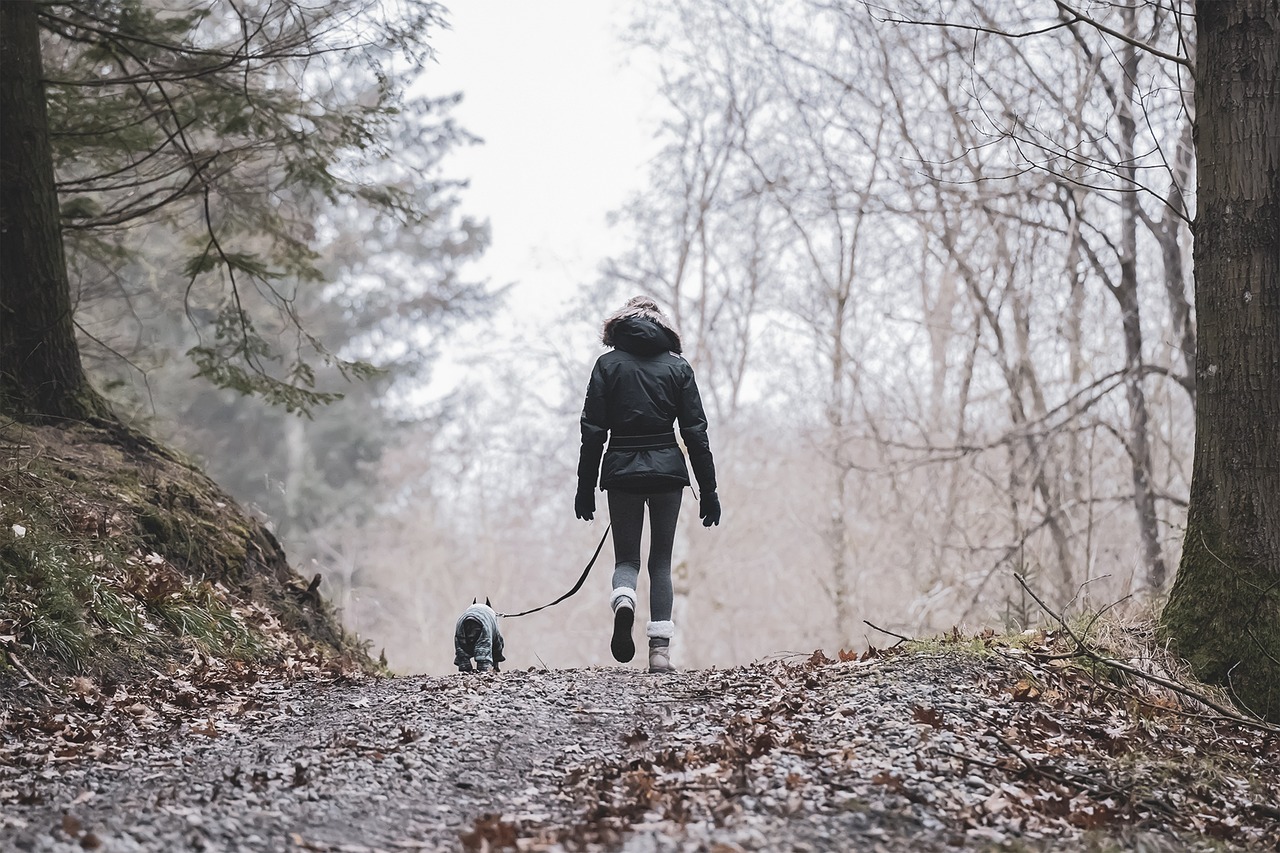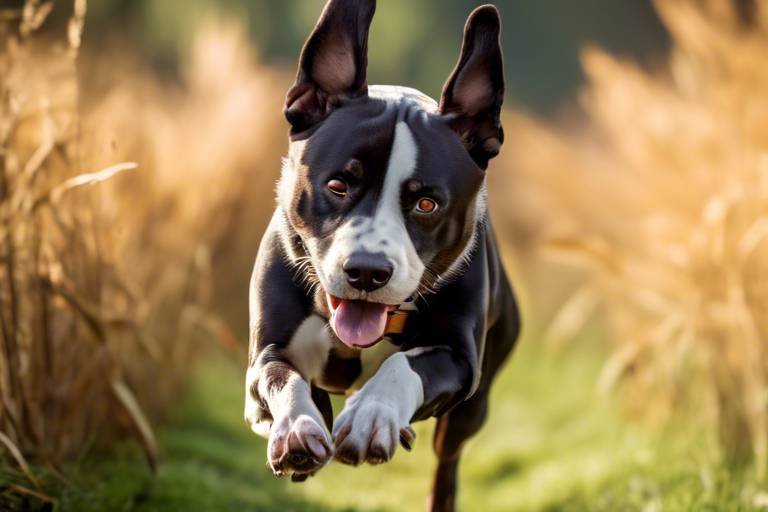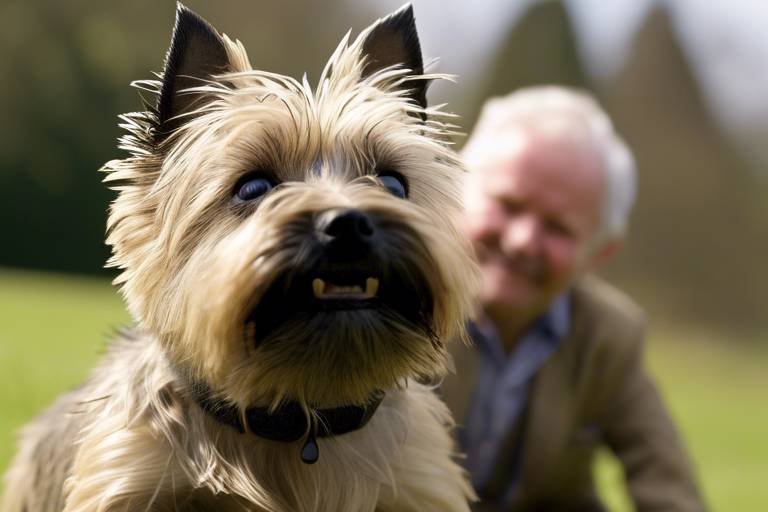The Gentle Nature of Bernese Mountain Dogs
Bernese Mountain Dogs are truly a sight to behold, with their striking tri-color coats and large, affectionate frames. But beyond their stunning appearance lies a temperament that is nothing short of enchanting. These dogs are renowned for their gentle nature, making them ideal companions for families and individuals alike. Imagine a loyal friend who is not just a pet but a member of the family, always ready to offer a comforting presence. Their calm demeanor and friendly disposition make them incredibly approachable, and they often form deep bonds with their human counterparts.
One of the most admirable traits of the Bernese Mountain Dog is their unwavering loyalty. They are known to be protective of their families, yet they balance this protective instinct with a warm and loving attitude. Whether it's snuggling on the couch or playing in the backyard, Bernese Mountain Dogs thrive on companionship and affection. Their gentle nature extends to children and other pets, allowing them to seamlessly integrate into any household. It's not uncommon to see these gentle giants playing tenderly with toddlers or sharing their space with other animals, embodying the essence of a family dog.
However, owning a Bernese Mountain Dog comes with its own set of responsibilities. While they are relatively easygoing, they require proper care, socialization, and training to thrive. Their natural inclination to be friendly and gentle can sometimes lead to overexcitement, especially when meeting new people or animals. Therefore, it’s essential to instill good manners and social skills from a young age. This not only ensures that they grow into well-adjusted adults but also enhances their ability to interact positively with their environment.
In conclusion, the Bernese Mountain Dog is more than just a beautiful breed; they are a testament to the power of companionship, loyalty, and gentle love. Their ability to adapt to family life, coupled with their affectionate nature, makes them one of the most cherished dog breeds around. If you're considering adding a Bernese Mountain Dog to your family, be prepared for a journey filled with love, laughter, and the gentle nudge of a furry friend who just wants to be by your side.
- Are Bernese Mountain Dogs good with children? Yes, they are known for their gentle and affectionate nature, making them great companions for kids.
- What is the average lifespan of a Bernese Mountain Dog? Typically, they live between 6 to 8 years, but with proper care, some can live longer.
- Do they require a lot of exercise? Yes, regular exercise is essential for their health and happiness, including walks and playtime.
- Are they easy to train? With consistent training and positive reinforcement, Bernese Mountain Dogs can be trained effectively.

Temperament Traits
Bernese Mountain Dogs are renowned for their calm and gentle demeanor, which makes them a favorite among families and dog lovers alike. Their friendly disposition is one of the most attractive traits, as they are naturally sociable and tend to get along with everyone they meet. Imagine coming home after a long day and being greeted by a furry friend who seems to sense your mood, offering comfort with a wagging tail and a warm nuzzle. That’s the magic of a Bernese!
These dogs are incredibly loyal and protective of their families. They have a natural instinct to guard their loved ones, which can make them excellent watchdogs. However, their protective nature doesn’t translate into aggression; instead, they are known for their gentle giants persona. They are particularly good with children, displaying a remarkable level of patience and understanding. When interacting with kids, Bernese Mountain Dogs often exhibit a playful spirit, turning any backyard into a playground.
Moreover, their temperament allows them to coexist peacefully with other pets. Bernese Mountain Dogs are generally easygoing and adaptable, which means they can integrate well into households with multiple animals. They enjoy social interactions and thrive in environments where they can form bonds with other pets. For instance, a Bernese might engage in a friendly game of chase with a cat or share a cozy spot on the couch with another dog.
Overall, the temperament of Bernese Mountain Dogs can be summarized into a few key traits:
- Affectionate: They love to cuddle and be close to their family.
- Intelligent: Quick learners who respond well to training.
- Gentle: Known for their soft mouths and gentle play style.
- Social: Enjoy being around people and other animals.
Their calm nature and affectionate personality make Bernese Mountain Dogs not just pets but true family members. Whether you’re enjoying a quiet evening at home or embarking on an outdoor adventure, these dogs have a way of enriching every moment with their presence. They remind us of the importance of companionship and the joy of having a loyal friend by our side.

Socialization Needs
When it comes to raising a Bernese Mountain Dog, one of the most critical aspects to consider is their . These gentle giants are not just beautiful to look at; they have a temperament that shines when they are well-adjusted and confident. Proper socialization from a young age is essential in helping them develop into the loving and friendly companions they are known to be. Just imagine raising a dog that not only loves you but also gets along with everyone else—sounds like a dream, right?
Socialization involves exposing your Bernese puppy to a variety of environments, people, and other animals. This early exposure is crucial for shaping their behavior and ensuring they grow up to be well-mannered adults. Think of it this way: just like humans, dogs need experiences to learn and grow. If you were to keep a child isolated from the world, they might struggle with social skills later in life. The same principle applies to our furry friends.
One effective method for socialization is to engage in positive reinforcement. This technique not only makes learning fun for your pup but also strengthens the bond you share. When your Bernese Mountain Dog encounters new situations—like meeting a stranger or seeing another dog for the first time—rewarding them with treats or praise can help them associate these experiences with positive outcomes. Imagine your dog wagging its tail and looking up at you with those big, soulful eyes, knowing that they’ve done something right. That’s the magic of positive reinforcement!
Another great way to socialize your Bernese Mountain Dog is by enrolling them in group training classes. These classes provide a structured environment where your pup can interact with other dogs and people. Not only does this enhance their social skills, but it also offers you, as an owner, the opportunity to learn effective training techniques. You’ll find that group classes are a fantastic way to build confidence in your dog while also making new friends—both human and canine!
In summary, socialization is not just a box to tick off on your dog-rearing checklist; it's an ongoing journey that enriches your Bernese Mountain Dog's life and your own. The more exposure they get, the more well-rounded and adaptable they will become. So, roll up your sleeves, grab some treats, and get ready to embark on this exciting adventure together!
- What age should I start socializing my Bernese Mountain Dog?
It's best to start socializing your puppy as early as 8 weeks old. Early experiences are crucial for their development. - How can I tell if my dog is well-socialized?
A well-socialized Bernese Mountain Dog will be calm and friendly around new people and other animals. They should show curiosity rather than fear. - What if my dog is fearful of new experiences?
Take it slow! Gradually expose them to new situations and use positive reinforcement to make them feel safe and secure.
Early Exposure
Early exposure is a critical factor in shaping the behavior and temperament of Bernese Mountain Dogs. Just like a sponge soaking up water, puppies are incredibly receptive to their surroundings during the first few months of their lives. Introducing them to a variety of environments, people, and other animals can significantly enhance their social skills and confidence. Imagine a puppy that has never seen a cat; when faced with one for the first time, it might react with fear or anxiety. However, a well-exposed puppy will likely greet the feline with curiosity and friendliness.
To ensure your Bernese Mountain Dog grows up to be a well-adjusted adult, consider these essential aspects of early exposure:
- Diverse Environments: Take your puppy to parks, busy streets, and quiet neighborhoods. Each setting presents different sounds, smells, and sights that will help them adapt to various situations.
- Meeting People: Encourage interactions with family, friends, and strangers. The more people your puppy meets, the more comfortable they will feel around different personalities.
- Animal Encounters: Safe encounters with other dogs and pets can teach your Bernese how to communicate and play appropriately. This is crucial for their development.
Additionally, consider organizing playdates with other friendly dogs. This not only helps with social skills but also provides an excellent outlet for their energy. Remember, the goal is to create positive experiences that will shape their perceptions of the world.
It's important to note that the early exposure process should be gradual and enjoyable. Overwhelming your puppy with too many new experiences at once can lead to anxiety rather than confidence. Think of it like introducing a child to a new school; a little at a time helps them adjust without feeling overwhelmed.
Incorporating early exposure into your puppy's routine can set the stage for a well-rounded and sociable adult dog. With patience and a proactive approach, you can help your Bernese Mountain Dog thrive in any environment, making them a delightful companion for your family.
- What is the best age to start socializing my Bernese Mountain Dog?
The ideal time to start socializing your puppy is between 3 to 14 weeks of age. This is when they are most receptive to new experiences.
- How can I tell if my puppy is well-socialized?
A well-socialized puppy will exhibit calm behavior around new people and environments. They should be curious rather than fearful and able to interact positively with other animals.
- What if my Bernese Mountain Dog shows signs of fear or aggression?
If your puppy displays fear or aggression, it's essential to consult a professional dog trainer or behaviorist. They can provide guidance on how to address these issues effectively.
Positive Reinforcement
When it comes to training Bernese Mountain Dogs, is the golden rule. Imagine you're a child learning to ride a bike; wouldn’t it feel amazing to hear your parents cheer you on every time you pedal forward? That's exactly how these gentle giants respond to encouragement! Using treats, praise, and playtime as rewards, you can create an environment where your Bernese feels loved and eager to learn. In fact, studies show that dogs trained with positive reinforcement are not only more obedient but also develop a stronger bond with their owners.
One effective method is to reward your Bernese immediately after they perform the desired behavior. For example, if your pup sits on command, shower them with affection and a tasty treat right away. This immediate feedback reinforces the connection between the action and the reward, making it more likely that they will repeat the behavior. Think of it as a game of catch: the more you throw the ball, the more your dog wants to play!
Furthermore, it's essential to keep training sessions short and fun. Bernese Mountain Dogs thrive in a playful atmosphere. If you notice their attention waning, take a break and switch to a game of fetch or tug-of-war. This not only helps keep their spirits high but also reinforces the idea that training is a fun and rewarding experience. Remember, a happy dog is a learning dog!
Another critical aspect of positive reinforcement is consistency. Just like how you wouldn’t expect a child to understand math if they only practiced once a week, your dog needs regular practice to master commands. Make sure everyone in your household is on the same page regarding commands and rewards. This consistency will help your Bernese feel secure and understand what is expected of them.
Lastly, don’t underestimate the power of patience. Every dog learns at their own pace, and Bernese Mountain Dogs are no exception. If you find that your pup isn’t catching on as quickly as you’d hoped, remember that it's a journey, not a race. Celebrate the small victories along the way, and soon you’ll have a well-mannered companion who is not only obedient but also radiates joy and confidence.
- What is positive reinforcement? Positive reinforcement is a training technique that involves rewarding desired behaviors to encourage their repetition.
- How do I start using positive reinforcement with my Bernese Mountain Dog? Begin by identifying a behavior you want to encourage, like sitting or staying, and reward your dog immediately after they perform it.
- Can positive reinforcement work for older dogs? Absolutely! Positive reinforcement can be effective for dogs of all ages, helping to strengthen bonds and improve behavior.
- How long should training sessions be? Keep training sessions short, around 5-10 minutes, to maintain your dog's focus and enthusiasm.
- What types of rewards can I use? Rewards can include treats, praise, toys, or playtime—whatever motivates your Bernese the most!
Group Classes
Enrolling your Bernese Mountain Dog in group training classes can be a game-changer for both you and your furry friend. Imagine a vibrant setting filled with wagging tails and happy barks; it’s not just a training session, it’s a social event! Group classes provide an excellent opportunity for your dog to interact with other dogs and people, which is crucial for their social development. In these classes, your pup will learn essential commands and behaviors while being surrounded by distractions, which is a fantastic way to build their confidence.
But why is this so important? Well, Bernese Mountain Dogs are known for their gentle and friendly nature, but without proper socialization, they might not reach their full potential as loving companions. Group classes create a controlled environment where your dog can learn to handle various situations, such as encountering new dogs or people. This exposure is vital for their development, helping them grow into well-adjusted adults who are comfortable in different settings.
In addition to socialization, group classes are also a fantastic way for owners to learn more about training techniques and dog behavior. You’ll get to interact with other dog owners, share experiences, and even pick up some tips and tricks along the way. It's like a mini-community where everyone shares the same goal: to raise happy, well-behaved dogs. Plus, the camaraderie you develop with fellow dog owners can be incredibly rewarding. Just think of it as a support group for dog lovers!
When choosing a group class, look for programs that emphasize positive reinforcement. This method encourages good behavior by rewarding your dog with treats, praise, or playtime when they perform desired actions, making learning a fun experience. Here’s a quick table to help you understand the benefits of group classes:
| Benefits of Group Classes | Description |
|---|---|
| Socialization | Helps your dog interact with other dogs and people, reducing anxiety and fear. |
| Training | Teaches essential commands and behaviors in a distracting environment. |
| Owner Education | Provides valuable insights into dog behavior and effective training techniques. |
| Community | Builds connections with other dog owners for support and shared experiences. |
In conclusion, group classes are not just about teaching your Bernese Mountain Dog obedience; they’re about creating a well-rounded companion who feels comfortable in their surroundings. So, if you want your Bernese to thrive and become the best version of themselves, consider signing them up for a group class. It’s an investment in their happiness and wellbeing that you won't regret!
- How old should my Bernese Mountain Dog be before starting group classes?
It’s best to start group classes after your puppy has completed their vaccinations, usually around 4-6 months of age. - What if my dog is shy or aggressive around other dogs?
Look for classes that cater specifically to shy or aggressive dogs. Trainers can provide tailored strategies to help your dog feel more comfortable. - How often should my dog attend group classes?
Regular attendance, such as once a week, can help reinforce training and socialization.
Family Integration
Bernese Mountain Dogs are often referred to as the gentle giants of the canine world, and it's easy to see why they make such wonderful family pets. Their affectionate nature allows them to form deep bonds with all family members, from the youngest children to the oldest grandparents. Imagine a fluffy, warm companion who not only loves to cuddle but also thrives on the energy and chaos of family life. This breed’s calm demeanor and friendly disposition make them a perfect fit for households looking for a loyal friend.
One of the most remarkable traits of Bernese Mountain Dogs is their innate ability to integrate seamlessly into family dynamics. They aren't just pets; they become integral members of the family. Whether it's joining in on family movie nights, participating in outdoor adventures, or simply lounging around the house, these dogs have a knack for being present and engaged. Their gentle nature means they are patient with children, often becoming their protectors and playmates. This bond is not just beneficial for the kids; it also teaches them valuable lessons about empathy and responsibility.
However, like any relationship, building a strong bond between a Bernese Mountain Dog and a family requires attention and effort. Here are a few ways to ensure your furry friend feels at home:
- Involve Them in Family Activities: Whether it's a hike, a picnic, or even just a trip to the park, including your Bernese Mountain Dog in family outings reinforces their role as a beloved family member.
- Establish Routines: Dogs thrive on routine. Having set times for meals, walks, and playtime helps them feel secure and integrated into family life.
- Encourage Interaction: Allow family members to take turns training and playing with the dog. This not only strengthens their bond but also helps the dog adapt to different personalities and commands.
It's also important to create a safe and comfortable space for your Bernese Mountain Dog within your home. Providing them with a designated area where they can retreat when they need quiet time is crucial. This could be a cozy corner with their bed and toys, where they can relax and recharge. Remember, a happy dog leads to a happy family!
In conclusion, Bernese Mountain Dogs are more than just pets; they are loving companions that enhance family life. Their gentle nature, coupled with their loyalty and affection, makes them an ideal choice for families. By fostering a nurturing environment and involving them in daily activities, you can ensure that your Bernese Mountain Dog feels like a cherished member of your family.
Below are some common questions families often have about integrating a Bernese Mountain Dog into their homes:
- Are Bernese Mountain Dogs good with children? Yes, they are known for their gentle and patient demeanor, making them excellent companions for children.
- How much exercise do they need? Bernese Mountain Dogs require regular exercise, ideally at least an hour daily, to keep them healthy and happy.
- Do they shed a lot? Yes, they are moderate to heavy shedders, so regular grooming is essential to manage their coat.

Health Considerations
When it comes to bringing a Bernese Mountain Dog into your home, understanding their is paramount. These gentle giants, while incredibly loving and loyal, do have specific health issues that potential owners should be aware of. Just like us, they can face a variety of health challenges throughout their lives, and being informed can help you provide the best care possible.
One of the most significant health concerns for Bernese Mountain Dogs is their predisposition to certain genetic conditions. These dogs are particularly vulnerable to hip dysplasia, a condition that affects the hip joint and can lead to arthritis and pain. Additionally, they are at risk for elbow dysplasia, which similarly impacts their joints. It's essential for prospective owners to seek out responsible breeders who screen for these conditions. This way, you can minimize the chances of bringing home a puppy with underlying health issues.
Another common concern is cancer. Unfortunately, Bernese Mountain Dogs have a higher incidence of certain types of cancer compared to other breeds. This includes conditions such as histiocytic sarcoma and mast cell tumors. Regular veterinary check-ups are crucial for early detection and treatment, as catching these issues early can significantly improve outcomes. Make sure to maintain a relationship with a veterinarian who understands the unique needs of this breed.
| Health Concern | Description | Preventive Measures |
|---|---|---|
| Hip Dysplasia | A genetic condition affecting the hip joint. | Choose a responsible breeder and ensure regular vet check-ups. |
| Elbow Dysplasia | A genetic condition affecting the elbow joint. | Regular exercise and weight management can help. |
| Cancer | Higher incidence of certain cancers. | Frequent vet visits for early detection. |
Aside from genetic issues, exercise requirements play a crucial role in maintaining the health of Bernese Mountain Dogs. These dogs are large and strong, and they need regular physical activity to keep their muscles toned and their joints healthy. A daily routine of at least an hour of exercise, which can include walks, playtime, and even some light jogging, is highly recommended. They are also known to enjoy fetch and other interactive games that stimulate both their body and mind.
Lastly, it’s important to keep an eye on their diet. A balanced diet tailored to their age, weight, and activity level can help prevent obesity, which is a common issue in large breeds. Regularly consult with your veterinarian to ensure that you're providing high-quality food that meets their nutritional needs. Remember, a healthy dog is a happy dog!
- What is the average lifespan of a Bernese Mountain Dog?
The average lifespan is around 7 to 10 years, but with proper care, some can live longer.
- Do Bernese Mountain Dogs shed a lot?
Yes, they have a thick double coat that sheds year-round and more heavily during seasonal changes.
- How often should I take my Bernese Mountain Dog to the vet?
Regular check-ups every 6 to 12 months are recommended to monitor their health.
- Are Bernese Mountain Dogs good with children?
Absolutely! They are known for their gentle and affectionate nature, making them great family pets.
Genetic Predispositions
When it comes to the Bernese Mountain Dog, understanding their genetic predispositions is crucial for any potential owner. Like many purebred dogs, they can be susceptible to certain health issues that are often inherited. This doesn't mean every Bernese will experience these problems, but awareness can help you take proactive steps in their care. Some of the most common genetic conditions affecting this breed include:
- Hip Dysplasia: This condition occurs when the hip joint doesn't fit snugly into the hip socket, which can lead to arthritis and pain. Regular vet check-ups and maintaining a healthy weight can help manage this risk.
- Elbow Dysplasia: Similar to hip dysplasia, this is a developmental issue affecting the elbow joint. Early diagnosis through x-rays can be beneficial.
- Progressive Retinal Atrophy (PRA): This is a degenerative eye condition that can lead to blindness. While there is no cure, regular eye examinations can help monitor the dog's vision.
- Gastric Dilatation-Volvulus (GDV): Often referred to as bloat, this serious condition can occur when the stomach fills with gas and twists. Awareness of the signs and immediate veterinary care are essential.
Responsible breeding practices play a significant role in minimizing these health risks. Reputable breeders conduct health screenings on their breeding dogs, ensuring that they are not passing on genetic issues to their puppies. As a future owner, it’s crucial to ask breeders about the health history of both the puppy's parents and to request any available health clearances.
Moreover, regular veterinary care and a healthy lifestyle can go a long way in enhancing the quality of life for your Bernese Mountain Dog. This includes maintaining a balanced diet, ensuring they get enough exercise, and keeping up with vaccinations and preventive care. By being informed and proactive, you can help your Bernese live a long, healthy, and happy life.
In conclusion, while Bernese Mountain Dogs may be predisposed to certain genetic conditions, understanding these risks allows you to take the necessary precautions. It’s all about being prepared and making informed decisions that will not only benefit your furry friend but also bring joy to your family.
Exercise Requirements
When it comes to keeping your Bernese Mountain Dog happy and healthy, exercise is not just a luxury—it's a necessity! These gentle giants are known for their calm demeanor, but they also possess a playful spirit that requires regular physical activity to keep them in tip-top shape. Think of exercise as the fuel that powers their joyful personality. Without it, they can become bored, leading to unwanted behaviors like chewing or excessive barking.
Ideally, a Bernese Mountain Dog should engage in at least 60 to 90 minutes of exercise each day. This doesn’t have to be a monotonous routine; rather, it can involve a variety of activities that stimulate both their body and mind. For instance, you can take them for long walks, enjoy a game of fetch in the backyard, or even embark on a hiking adventure. These dogs thrive on outdoor activities, and their natural affinity for the great outdoors makes them excellent companions for exploring nature.
Consider incorporating a mix of the following activities into your dog's routine:
- Daily Walks: Aim for at least two walks a day to help your dog burn off energy and stay mentally stimulated.
- Playtime: Engage in interactive games like tug-of-war or fetch to strengthen your bond and keep them active.
- Swimming: Bernese Mountain Dogs often enjoy water, making swimming a fantastic way to exercise without putting too much strain on their joints.
- Agility Training: Setting up an agility course can provide both physical and mental challenges, enhancing their coordination and focus.
It's essential to remember that Bernese Mountain Dogs are prone to certain health issues, particularly joint problems, so it's important to tailor their exercise routine accordingly. Always consult your veterinarian for personalized advice, especially if your dog is a senior or has any pre-existing conditions. Regular check-ups can help ensure that your furry friend remains healthy and happy.
In summary, keeping your Bernese Mountain Dog active is crucial for their overall well-being. By providing a balanced mix of physical exercise and mental stimulation, you can help them thrive in their environment. Just think of it this way: a tired dog is a happy dog! So, lace up your sneakers, grab that leash, and get ready to enjoy some quality time with your gentle companion.
Q: How much exercise do Bernese Mountain Dogs need as puppies?
A: Puppies require less intense exercise, around 30 minutes a day, broken into short play sessions to avoid overexertion.
Q: Can Bernese Mountain Dogs participate in dog sports?
A: Absolutely! Many Bernese Mountain Dogs excel in activities like obedience, agility, and even herding trials, which provides great physical and mental stimulation.
Q: What should I do if my Bernese Mountain Dog becomes bored?
A: If your dog shows signs of boredom, try varying their exercise routine, introducing new games, or even considering doggy playdates to keep them engaged.
Frequently Asked Questions
- What is the temperament of Bernese Mountain Dogs?
Bernese Mountain Dogs are renowned for their gentle and calm demeanor. They are friendly, loyal, and affectionate, making them excellent companions for families and individuals alike. Their gentle nature allows them to interact well with children and other pets, which is why they are often considered ideal family pets.
- How can I socialize my Bernese Mountain Dog?
Socialization is crucial for Bernese Mountain Dogs. Start by exposing them to different environments, people, and animals from a young age. This early exposure helps them develop good social skills and become well-adjusted adults. Using positive reinforcement during training sessions can also enhance their ability to learn and interact with others.
- What are the common health issues in Bernese Mountain Dogs?
Like all breeds, Bernese Mountain Dogs can be prone to certain genetic health issues, such as hip dysplasia and certain types of cancer. Regular veterinary check-ups and responsible breeding practices can help minimize these risks and ensure your dog remains healthy.
- How much exercise do Bernese Mountain Dogs need?
Bernese Mountain Dogs require regular exercise to stay healthy and happy. Ideally, they should have at least 30 to 60 minutes of activity each day. Activities like walking, running, and playing fetch are excellent for keeping them physically and mentally stimulated.
- Are Bernese Mountain Dogs good with children?
Absolutely! Bernese Mountain Dogs are known for their affectionate nature towards children. They are typically patient and gentle, making them great playmates. However, as with any dog, it’s essential to supervise interactions to ensure safety for both the dog and the children.
- What training methods work best for Bernese Mountain Dogs?
Positive reinforcement is the most effective training method for Bernese Mountain Dogs. This includes rewarding good behavior with treats, praise, or playtime. Additionally, enrolling them in group training classes can provide valuable social experiences and help them learn alongside other dogs.
- How do I care for my Bernese Mountain Dog?
Caring for a Bernese Mountain Dog involves regular grooming, exercise, and veterinary care. Their thick coat requires frequent brushing to prevent matting and reduce shedding. Additionally, maintaining a balanced diet and ensuring they get regular check-ups will help keep them healthy and happy.



















